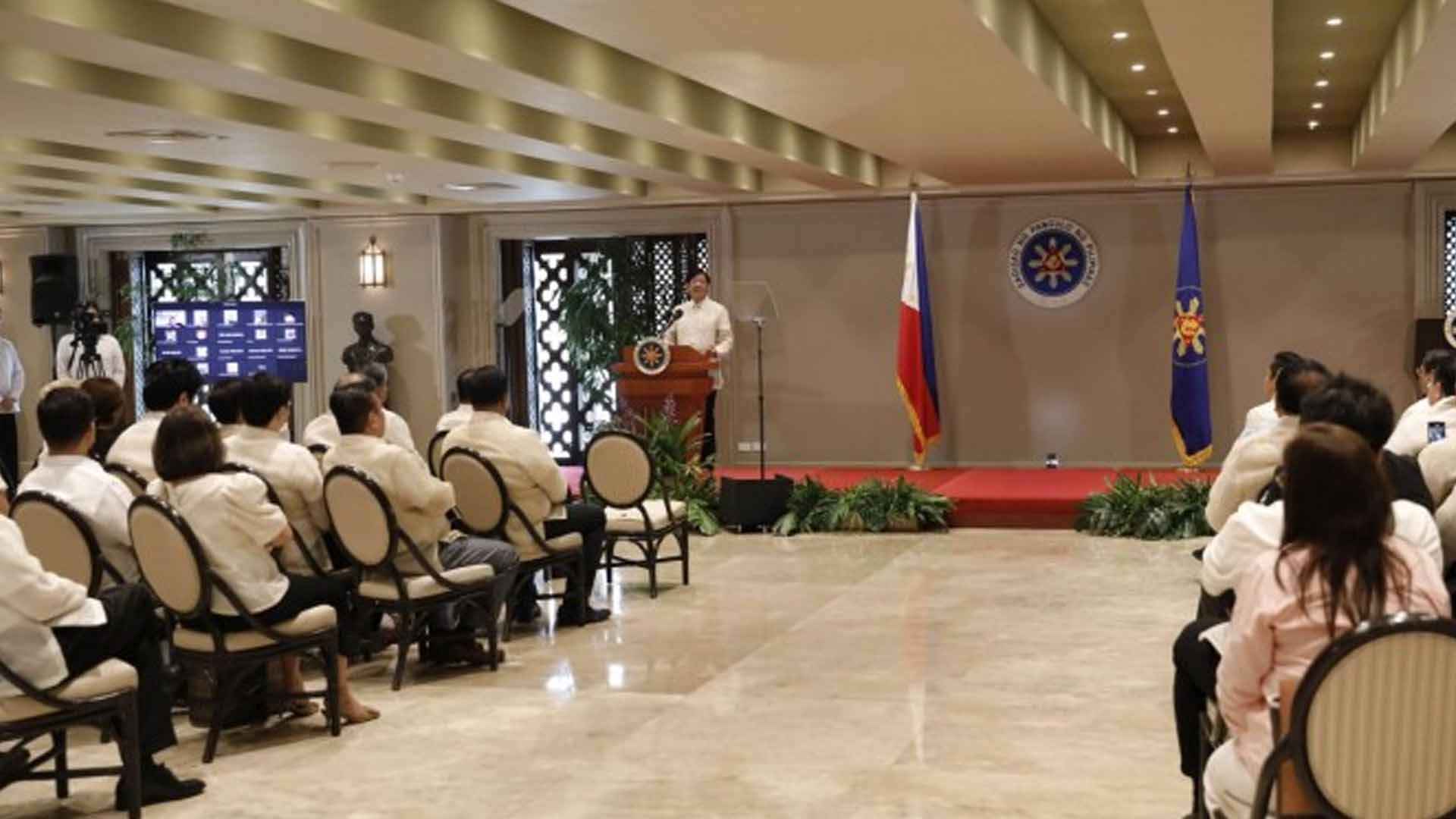President Ferdinand R. Marcos Jr. on Thursday emphasized the importance of establishing “power centers” not just in Metro Manila but across the Philippines to ensure political stability.
“That is very simple. That derives a very simple idea that the stability of a political structure is much more reliable when we have many power centers. If the power centers only belong here in Manila, then pabagsakin mo ‘yung Manila, bagsak ang buong Pilipinas (if Manila falls, the entire Philippines would fall),” Marcos said during the oath-taking of new members of the Partido Federal ng Pilipinas (PFP) in a ceremony at Malacañan Palace in Manila.
The President said he would leave to local governments the discretion to decide for their respective constituents, noting that it is “the first step of a federal government for the Philippines in all but name.”
The move, he said, would make the country’s political structure and political life “more stable.”
“There has to be a central tenet and central principle to what we are doing. And we are talking here about federalism. What we have started to do, in all but name, ang ating ginagawa ay talagang ibinibigay ang discretion, ang power, ang function, hangga’t maaari sa pinakamababang level na maaari nating gawin (is really give the discretion, the power, the function, as much as possible, to the lowest level as much as we can),” Marcos said.
“Dahil kung may mangyari sa isang lugar, kahit bumagsak iyan, basta’t nasira, hindi na talaga puwede, nagka-giyera, whatever, tuloy pa rin ‘yung mga iba (Because if something happens in one place, even if it falls, suffers irreparable damage, engages in a war or whatever, the other areas [in the country] will remain unaffected).”
He said the seemingly federal set-up would continue by bringing more power centers to other parts of the country.
The Philippines is currently under a unitary form of government with power and authority vested in “imperial” Manila.
Under a federal government, power is divided between the central government and local state governments.
A federal system of government also empowers each state to handle its own laws, finances, development plans, health, education and infrastructure, among others.
“With the power centers being given to the local governments, to the local districts and to those who are operating at the local level, and thereby bringing those power centers to many, many places, it makes for a more stable political structure and makes for more stable political life,” Marcos said.
“And that’s why the idea of federalism became very important because, again, it is my firm belief that we really have to give. Ang aking laging sinasabi (what I always say), which is very, very much in parallel with the thinking of federalism is that with all the systems that we are trying to put together, what we are trying to do is to make the decision process be made in as low level as possible.” (PNA)







